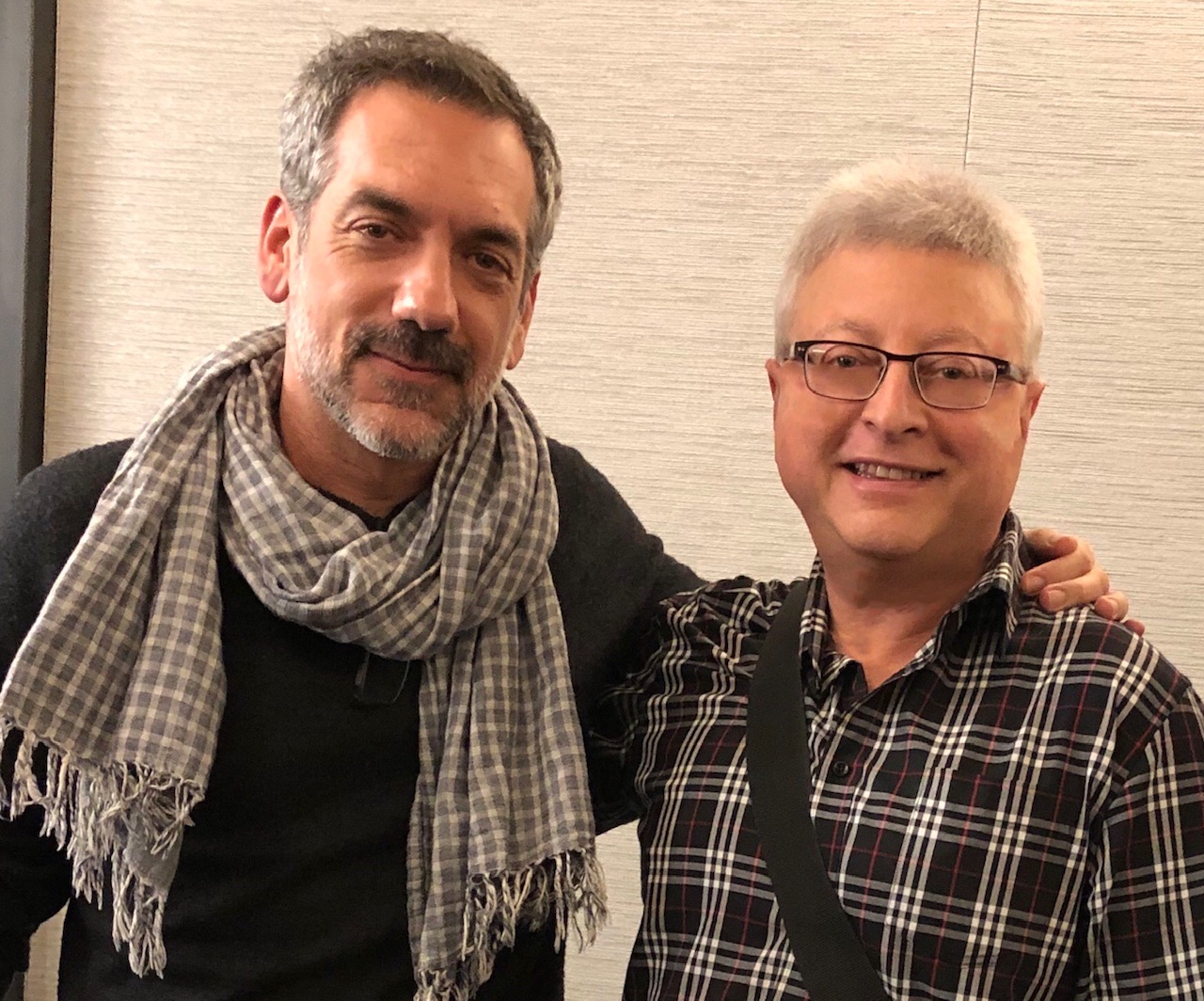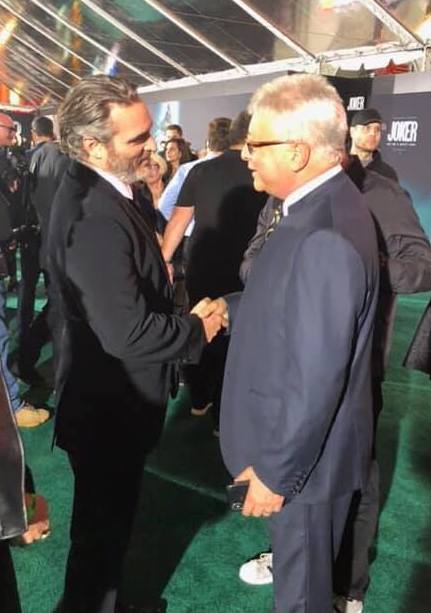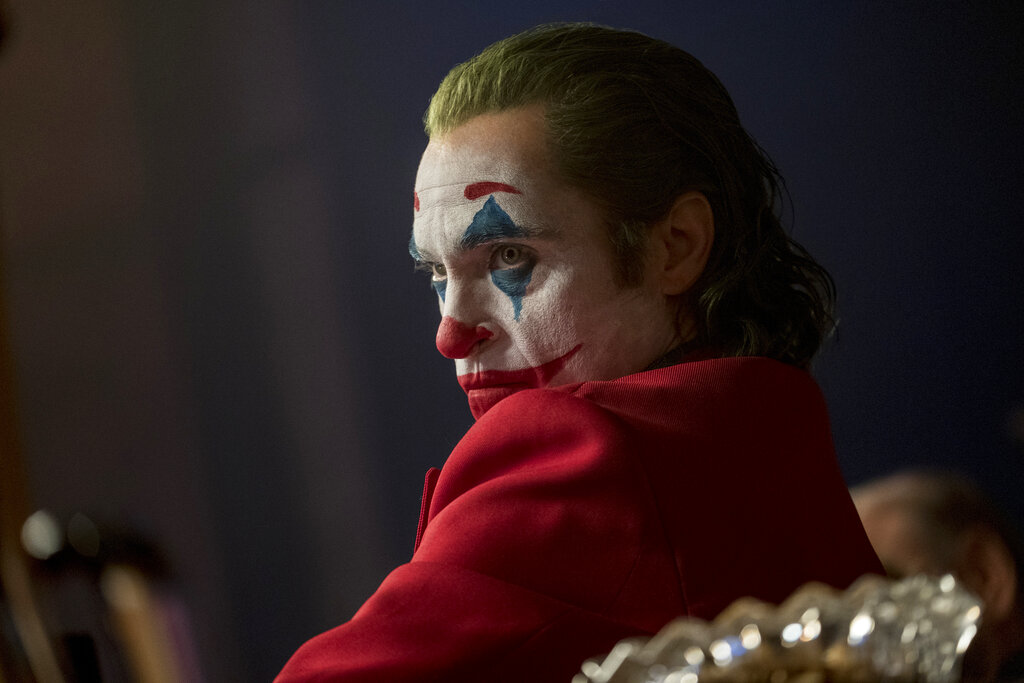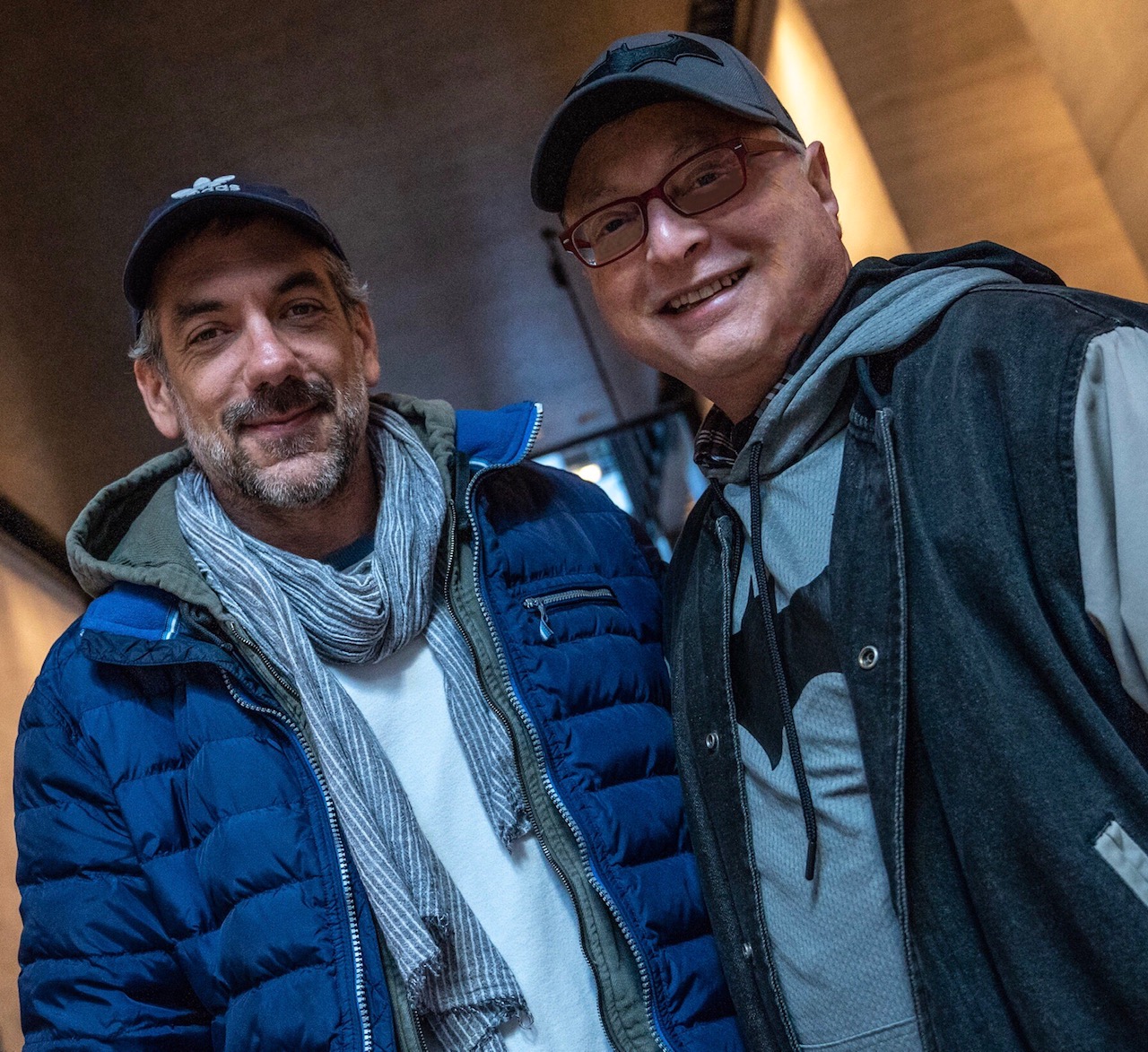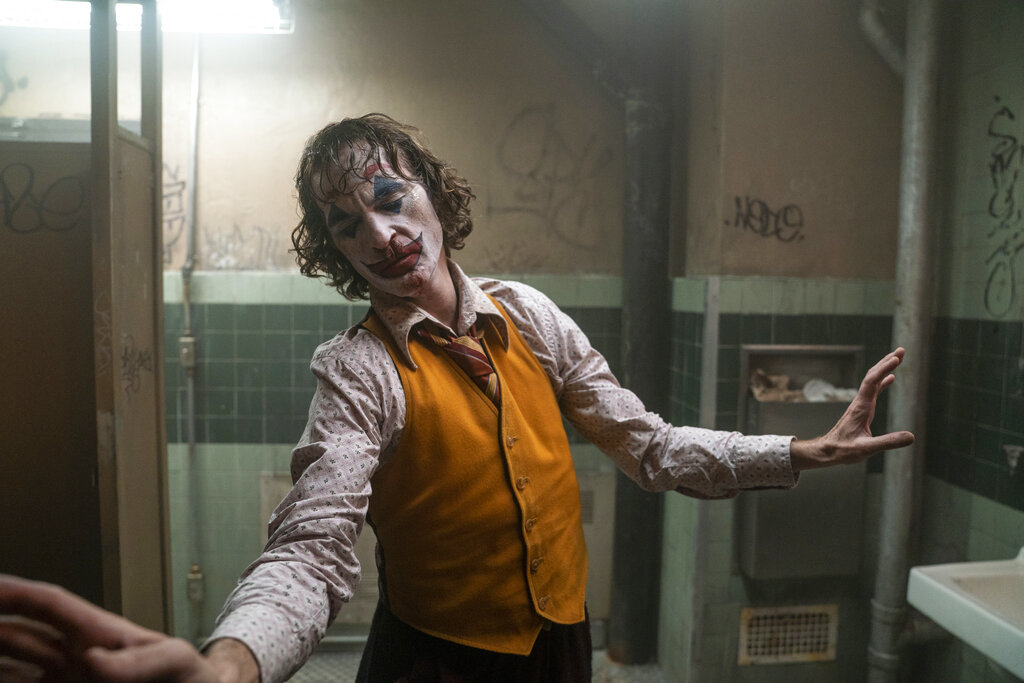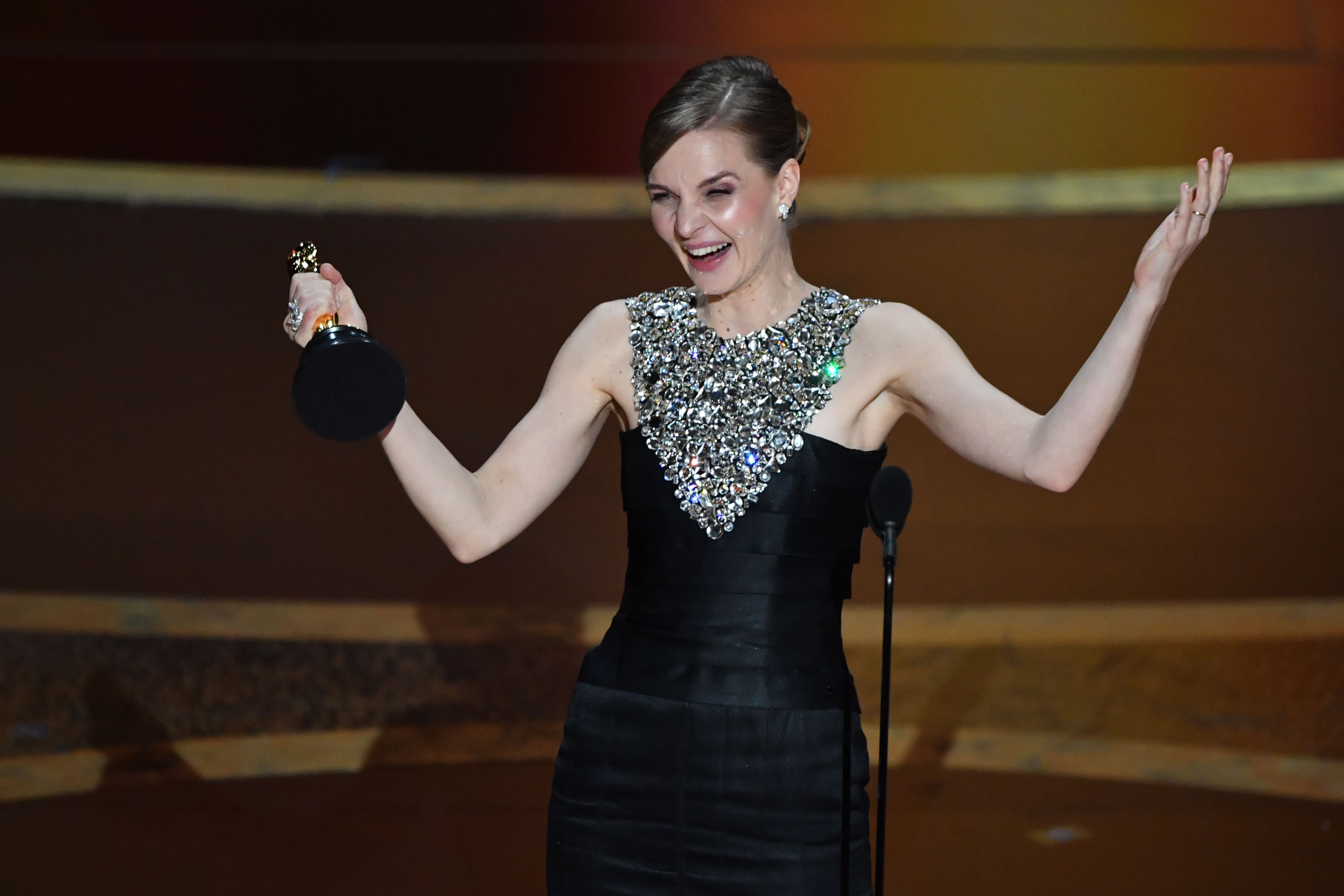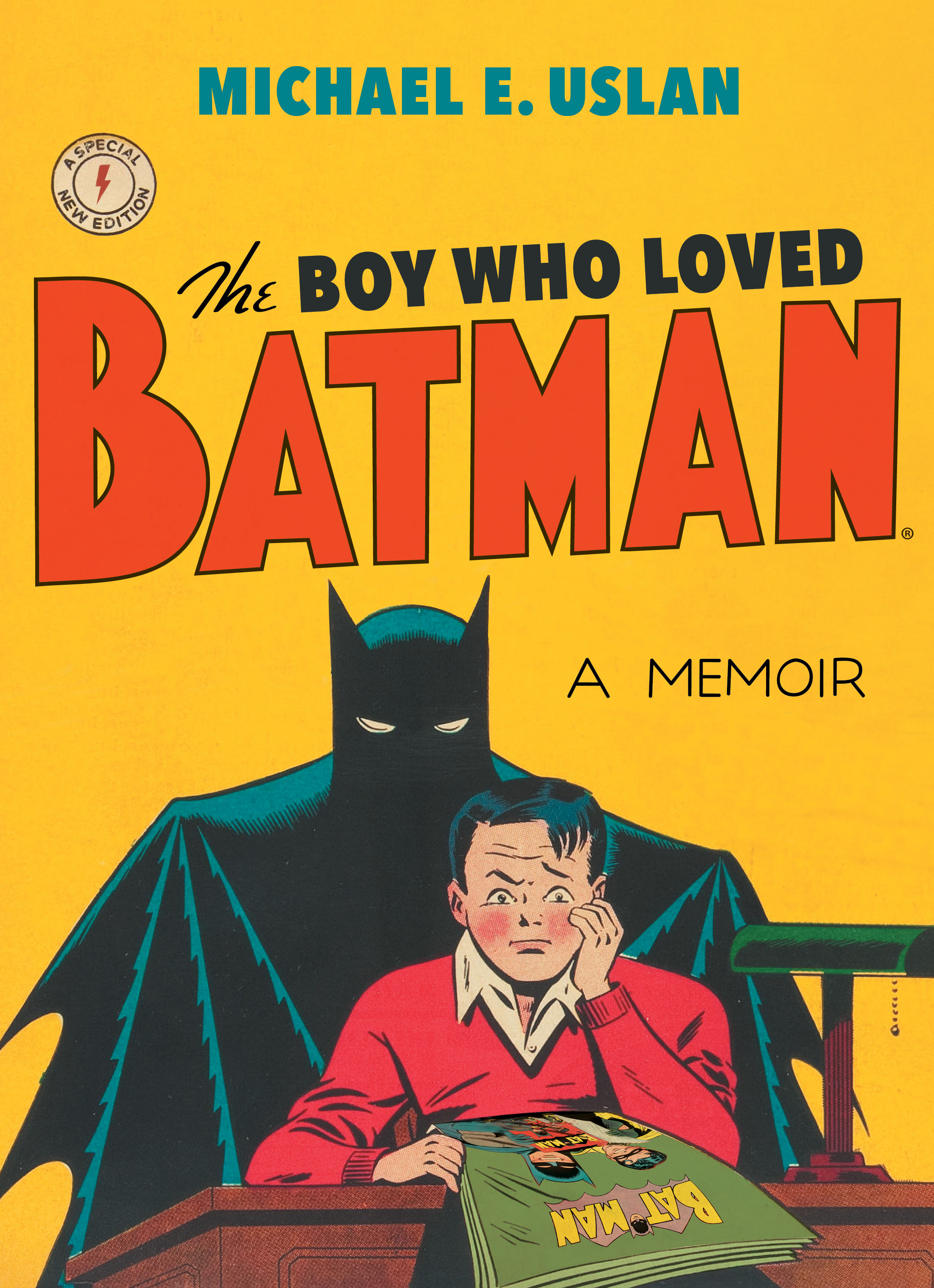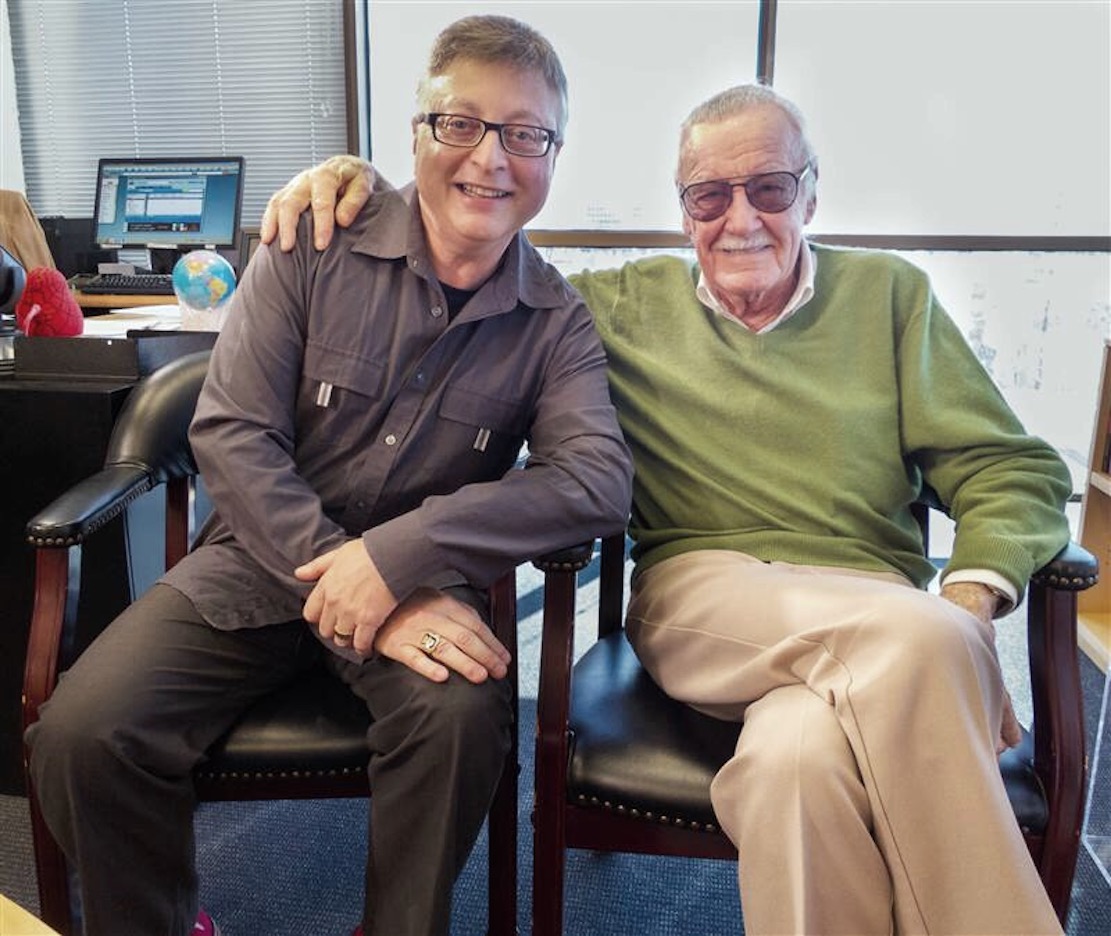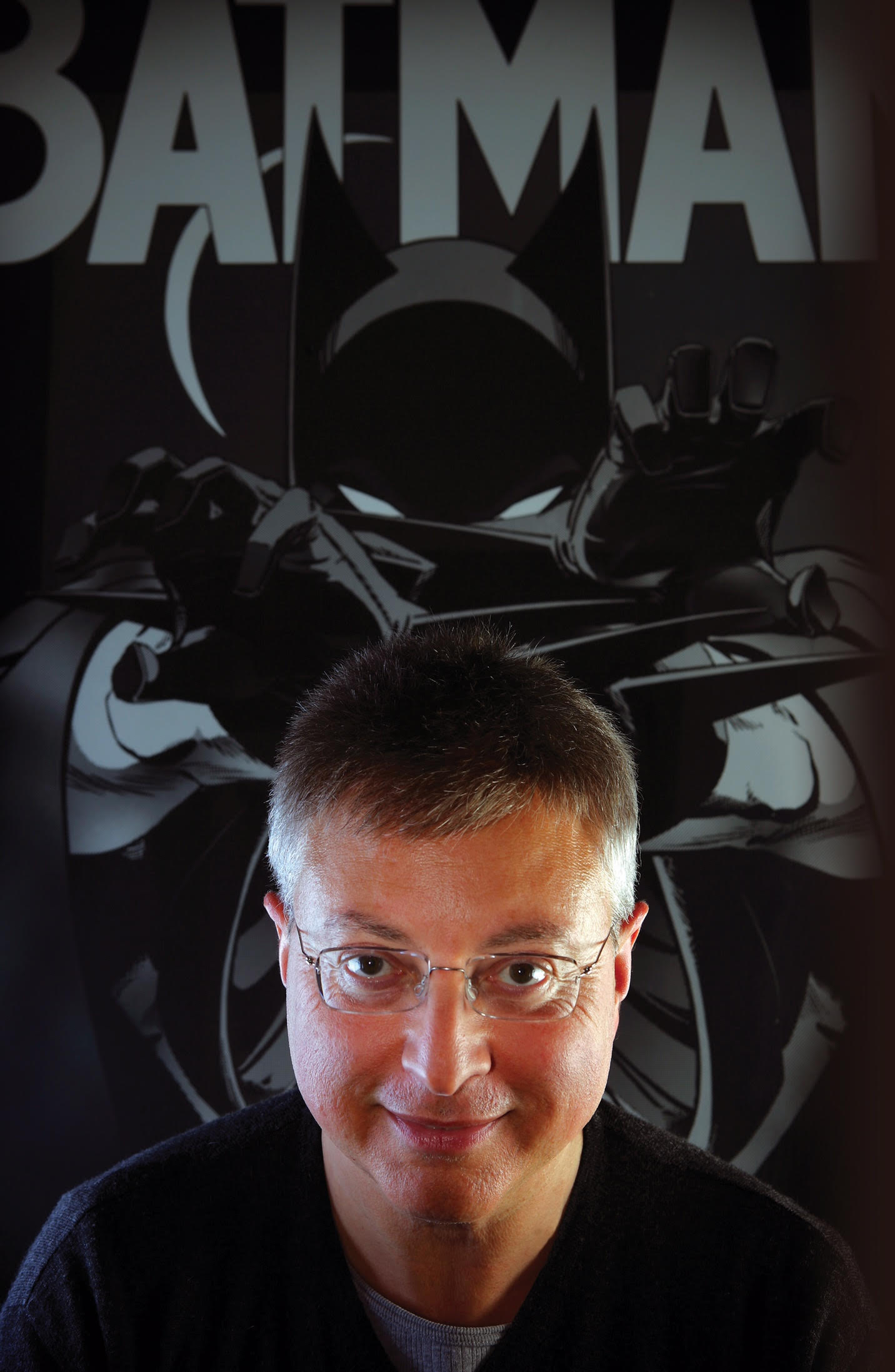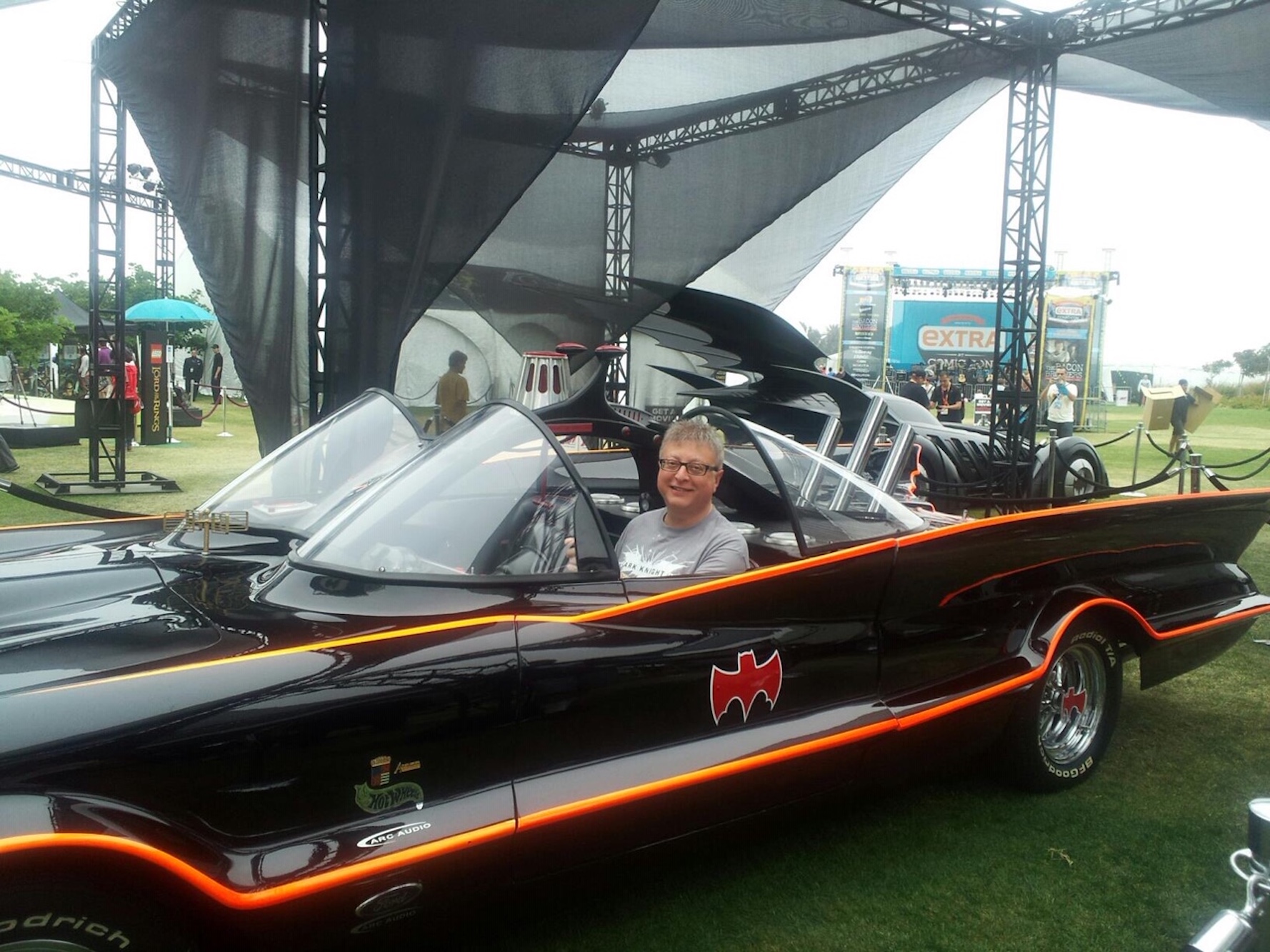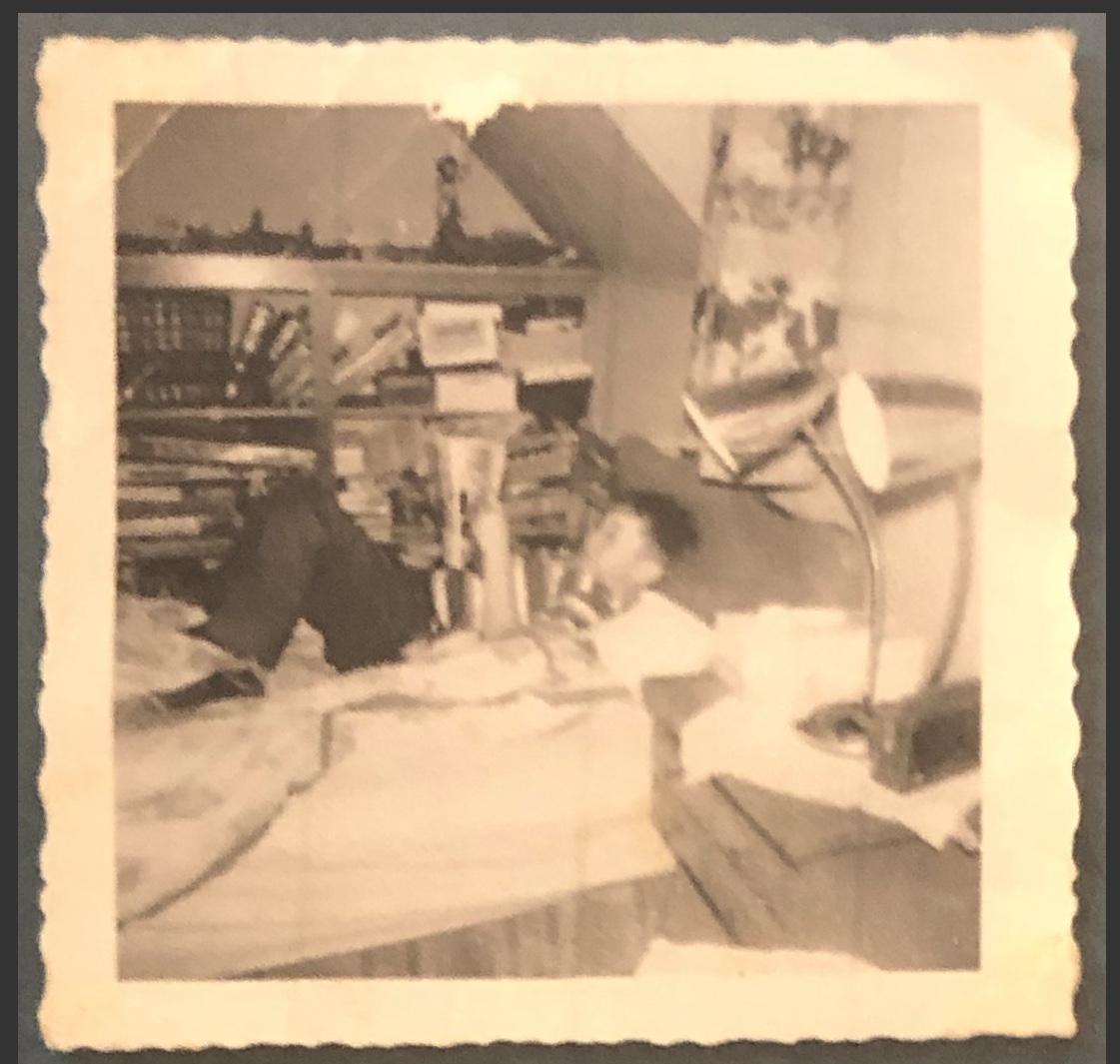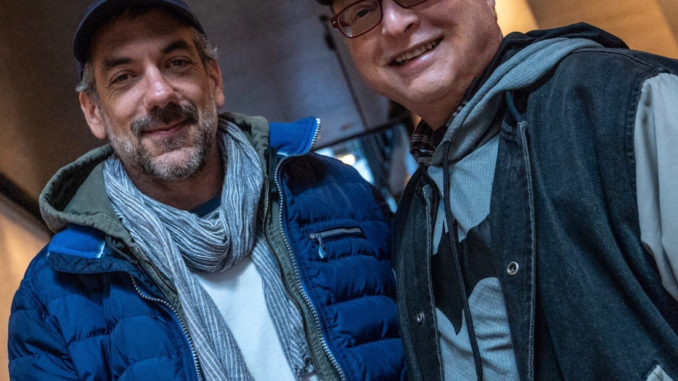
Michael Uslan can clearly see himself on a bench outside the offices of Columbia Pictures on the day of darkest despair for him and the Batman.
It’s the early ’80s, and he and his producing partner Ben Melnicker had just run out of studios to pitch on Uslan’s dream of a new kind of Batman movie, one where Batman was a darker, more serious character than the campy caped crusader he’d been on TV in the ’60s (and at times in the comic books, too).
“I had my head between my legs at this point — this was the last studio that told us no,” says Uslan, who in 1979, while still in his 20s, had acquired the rights to Batman for film and television. “It was a dark moment.”
Melnicker, who was as old as Uslan’s father, turned to him and noted that this time the answer had been no because Uslan had refused to let the studio turn Batman into something less than what Uslan believed he could be.
“He said, ‘You know what that makes you?’ and I said, ‘I know, I’m an idiot,’” Uslan says. “And he says, ‘No, you’re Batman’s Batman. You’re his protector, and you have this vision for what you believe to your toes is the right vision.’”
On Monday, the day after the Academy Awards where “Joker” won two Oscars — Joaquin Phoenix as best actor for the title role, composer Hildur Gudnadóttir for best score — Uslan, who is an executive producer on “Joker” and every other Batman-related project, talked about the long journey the residents of Gotham have had on their way to respect in Hollywood.
It is not, he says, so much that the Academy sees comic-book movies in a new light this year with “Joker” earning 11 nominations, and last year when “Black Panther” grabbed seven, so much as the light has gotten brighter.
After all, Uslan notes, when he finally convinced Warner Bros. to make the 1989 Tim Burton-directed “Batman” it earned an Oscar nomination for art direction, which production designer Anton Furst and set decorator Peter Young ultimately won.
Flash-forward to 2008: Director Christopher Nolan’s “The Dark Knight” earned eight Oscar nominations and won two, including best supporting actor for Heath Ledger’s portrayal of the Joker. That was the first and, until Phoenix, only acting Academy Award for a comic book-inspired performance.
“It was the public outcry that ‘Dark Knight’ had not been nominated for best film, and that backlash that changed the Academy,” Uslan says. “That then opened the door for ‘Black Panther’ to receive the nominations it did, and ‘Joker’ to nominations it did.”
While “Joker” is a standalone origin story of Batman’s most famous nemesis, Uslan says he sees it as something beyond categorization as a comic-book movie.
“Cinema is here to entertain, we all know that,” he says. “But at its best, I believe cinema effectively holds a mirror up to society. The ‘Joker’ movie is a mirror held up to society today and it reflects the warts and all of what is out there — people ignoring issues of mental health, the violence that that can unleash.
“I contend that this movie is the most important movie dealing with issues of mental health since ‘One Flew Over the Cuckoo’s Nest.’ It makes us look into this reflection. A lot of people are uncomfortable doing it, it’s disturbing, but there it is.”
This, Uslan argues, is a Joker fit for the times in which the movie was made, just as Heath Ledger’s Joker in “The Dark Knight” reflected the anxieties of a post-9/11 world and Jack Nicholson in “Batman” played the Joker as the clown prince of crime he still could be in those days.
As for why the only actors to win Oscars for roles born of the world of comics are both Jokers, Uslan says it’s a simple answer.
“I don’t think it’s any dark subversive secret that the greatest superheroes, the longest-lasting superheroes, have been the ones who had the greatest villains,” he says. “Stan Lee (of Marvel fame) used to tell me all the time, ‘Michael, ultimately it is the supervillain.’
“It’s a little bit more challenging, I think, to have somebody who by day is a billionaire, whether it’s (Iron Man’s) Tony Stark or (Batman’s) Bruce Wayne,” Uslan says. “It’s not quite as colorful. It’s not quite as unpredictable as with the villains.”
Still, he thinks that if Christian Bale, who played Batman in the Christopher Nolan trilogy of films, had played that role today, he might well have earned an Oscar nomination, too.
“He was absolutely phenomenal and had he been doing Batman now as opposed to 15 years ago I think it would be an altogether different story,” Uslan says. “We were just a little bit ahead of our times.”
In 2021, the Batman franchise will reboot again, with Robert Pattinson in the role and director Matt Reeves, whose credits include the two most recent “Planet of the Apes” movies, also co-writing the script.
“Once again it’s about a filmmaker with love and a passion and an understanding (of Batman),” Uslan says. “I couldn’t be more excited about this — what’s coming is going to thrill every Batman fan, everybody who’s been dying to see the world’s greatest detective in action. As a fanboy as well as the producer side, I couldn’t be more happy.”
Uslan may be the world’s ultimate Batman fan — his memoir, “The Boy Who Loved Batman,” which was recently issued in paperback, details that life-long love — so seeing his dreams succeed as they have more than makes up for the years of struggle to find someone in Hollywood to back his vision.
“If my legacy is the fact that three times in history a Batman or Batman-related movie changed the comic book industry, changed Hollywood, changed the world — and I think that ‘Batman,’ ‘The Dark Knight trilogy, and ‘Joker’ have done that — I will yell out to 20-year-old Michael that you accomplished everything you set out to do.
“You protected Batman, you were Batman’s Batman, and I have my perpetual smile on my face just like all of Joker’s victims in Batman No. 1.”
